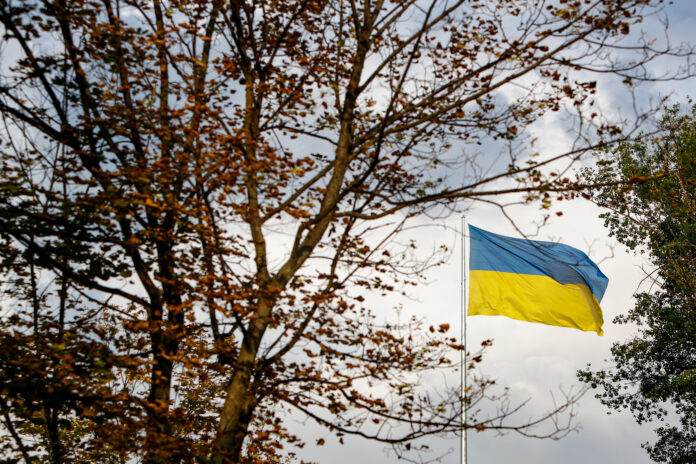Russian-installed leaders in occupied areas of four Ukrainian regions set out plans for referendums on joining Russia this week, a step an ally of President Vladimir Putin said would alter the geopolitical landscape forever.
Russian officials portrayed the move as one that would give Moscow a claim to territory that it could defend with any means possible. Ukraine dismissed it as a stunt by Russia to try to reclaim the initiative after crushing losses on the battlefield.
“Sham ‘referendums’ will not change anything,” tweeted Ukraine’s Foreign Minister Dmytro Kuleba.
“Russia has been and remains an aggressor illegally occupying parts of Ukrainian land. Ukraine has every right to liberate its territories and will keep liberating them whatever Russia has to say.”
Russian-installed officials announced planned referendums for Sept. 23-27 in the Luhansk, Donetsk, Kherson and Zaporizhzhia provinces, representing around 15 per cent of Ukrainian territory or an area about the size of Hungary or Portugal.
Russia already considers Luhansk and Donetsk, which it partially occupied in 2014, to be independent states. Ukraine and the West consider them parts of Ukraine illegally occupied by Russian invaders.
In a post on social media addressed to Putin, the leader of the self-proclaimed Donetsk People’s Republic (DPR), Denis Pushilin, wrote: “I ask you, as soon as possible, in the event of a positive decision in the referendum – which we have no doubt about – to consider the DPR becoming a part of Russia.”
Some pro-Kremlin figures framed the referendums as an ultimatum to the West to accept Russian territorial gains or face an all-out war with a nuclear-armed foe.
Ukrainian mass graves discovered in Izium amid Russian invasion
“Encroachment onto Russian territory is a crime which allows you to use all the forces of self–defence,” Dmitry Medvedev, a former Russian president and now hawkish deputy chairman of Putin’s Security Council said on social media.
Trending Stories
Canadian Hurricane Centre watching Fiona as it tracks towards east coast
Trudeau seen singing with renowned Quebec musician days before queen’s funeral
“This is why these referendums are so feared in Kyiv and the West,” he wrote. “They would completely change the vector of Russia’s development for decades. And not just of our country. The geopolitical transformation of the world would be irreversible once the new territories were incorporated into Russia.”
Washington and the West have so far said weapons they supply to Ukraine should not be used to fire on Russian territory, though they have not extended this to territory they view as unlawfully annexed, such as Crimea, which Russia seized in 2014.
Margarita Simonyan, editor-in-chief of the pro-Kremlin RT TV station, said the votes could either deliver a victory for Russia or a much wider and more serious war.
“Today a referendum, tomorrow recognition as part of the Russian Federation, the day after tomorrow strikes on Russian territory become a full-fledged war between Ukraine and NATO and Russia, untying Russia’s hands in every respect,” Simonyan, who is regarded as a hardliner, wrote on Telegram.
But Ukrainian officials portrayed the move as one of desperation at a time when Russian forces are being pushed back. Andriy Yermak, chief of staff to Ukrainian President Volodymyr Zelenskyy, dismissed the threat of referendums as “naive blackmail” and as a sign that Russia was running scared.
Russia has declared capturing all of Luhansk and Donetsk provinces to be the main aim of its “special military operation” since its invasion forces were defeated in March on the outskirts of Kyiv.
It now holds about 60 per cent of Donetsk and had captured nearly all of Luhansk by July after slow advances during months of intense fighting. But those gains are now under threat after Russian forces were driven from neighbouring Kharkiv province this month, losing control of their main supply lines for much of the Donetsk and Luhansk front lines.
The referendums were announced a day after Ukraine said its troops had recaptured a foothold in Luhansk, the village of Bilohorivka, and were preparing to advance across the province.
Russia controls most of Zaporizhzhia but not its regional capital. In Kherson, where the regional capital is the only major city Russia has so far captured intact since the invasion, Ukraine has launched a major counter-offensive.
“The occupiers are clearly in a panic,” Ukrainian President Zelenskyy said in an overnight televised address.
Unverified footage on social media showed Ukrainian forces in Bilohorivka, which lies just 10 km (6 miles) west of the city of Lysychansk, which fell to the Russians after weeks of some of the war’s most intense fighting in July.
“There will be fighting for every centimeter,” the Ukrainian governor of Luhansk, Serhiy Gaidai, wrote on Telegram. “The enemy is preparing their defense. So we will not simply march in.”
Pro-Russian officials have said the referendums could be held electronically. Russia staged a referendum in Crimea eight years ago before declaring it annexed. Western countries have dismissed such votes as illegal and fraudulent.
In a move designed to shore up Russia’s military in Ukraine, Russia’s parliament on Tuesday also approved a bill to toughen punishments for a host of crimes such as desertion, damage to military property and insubordination, if they were committed during military mobilization or combat situations.
© 2022 Reuters



